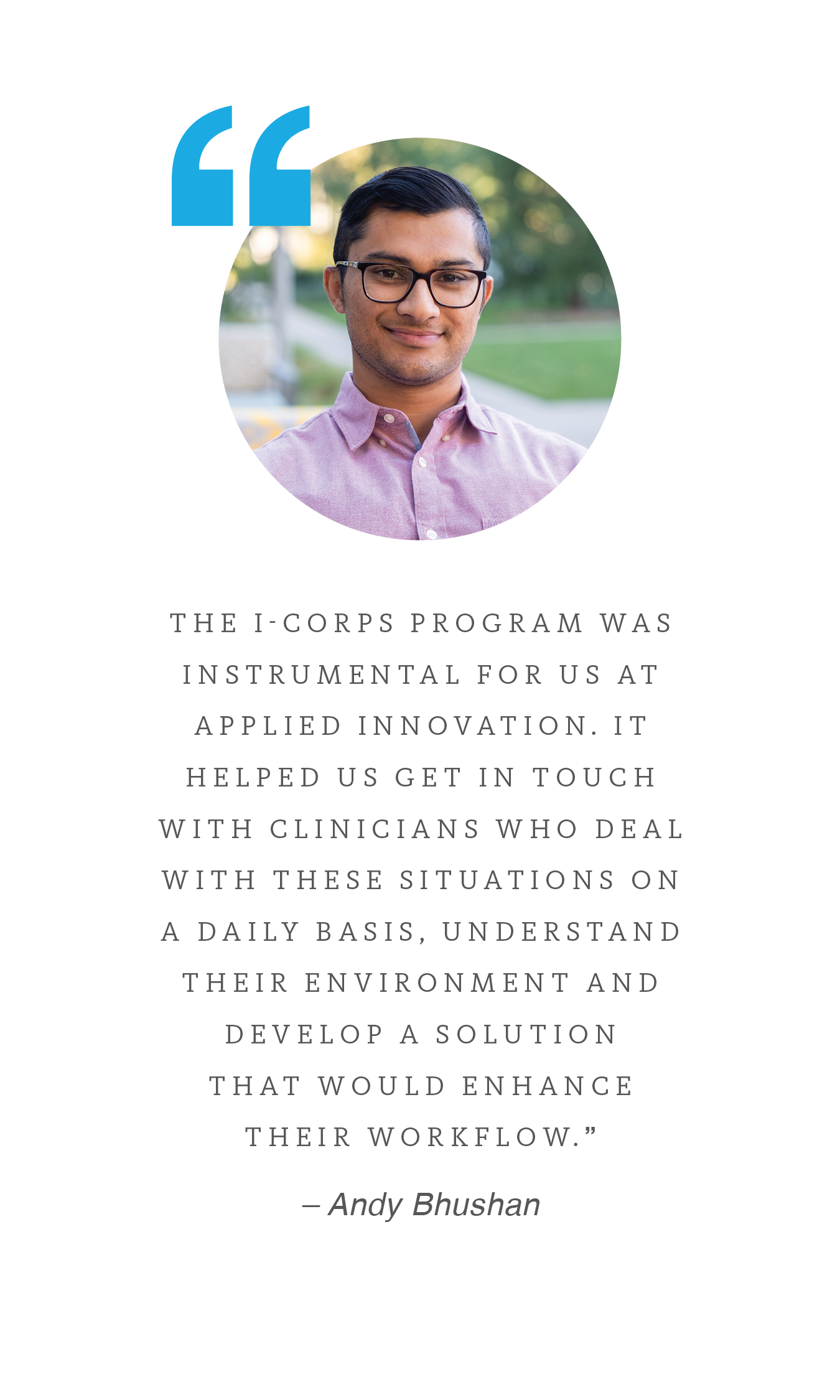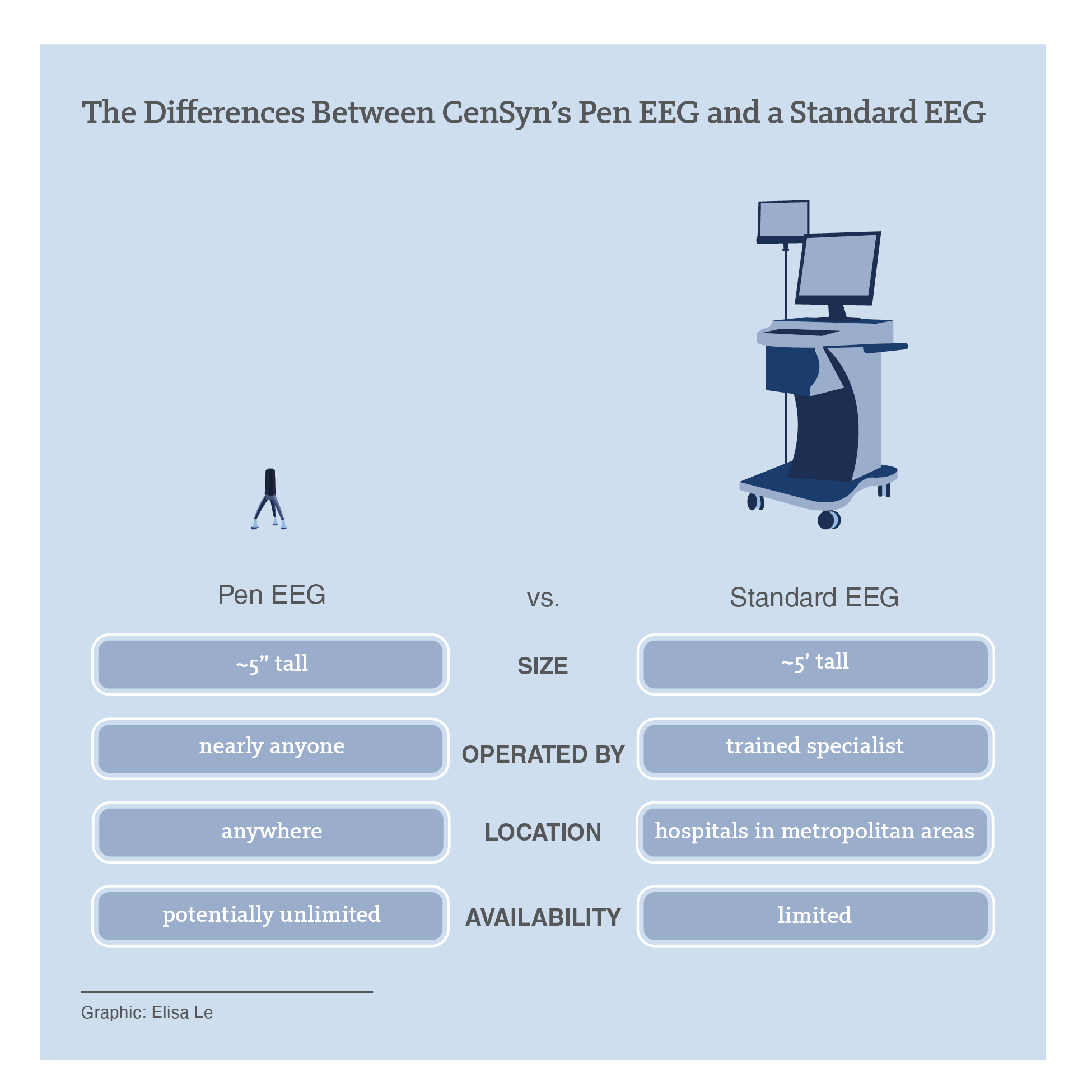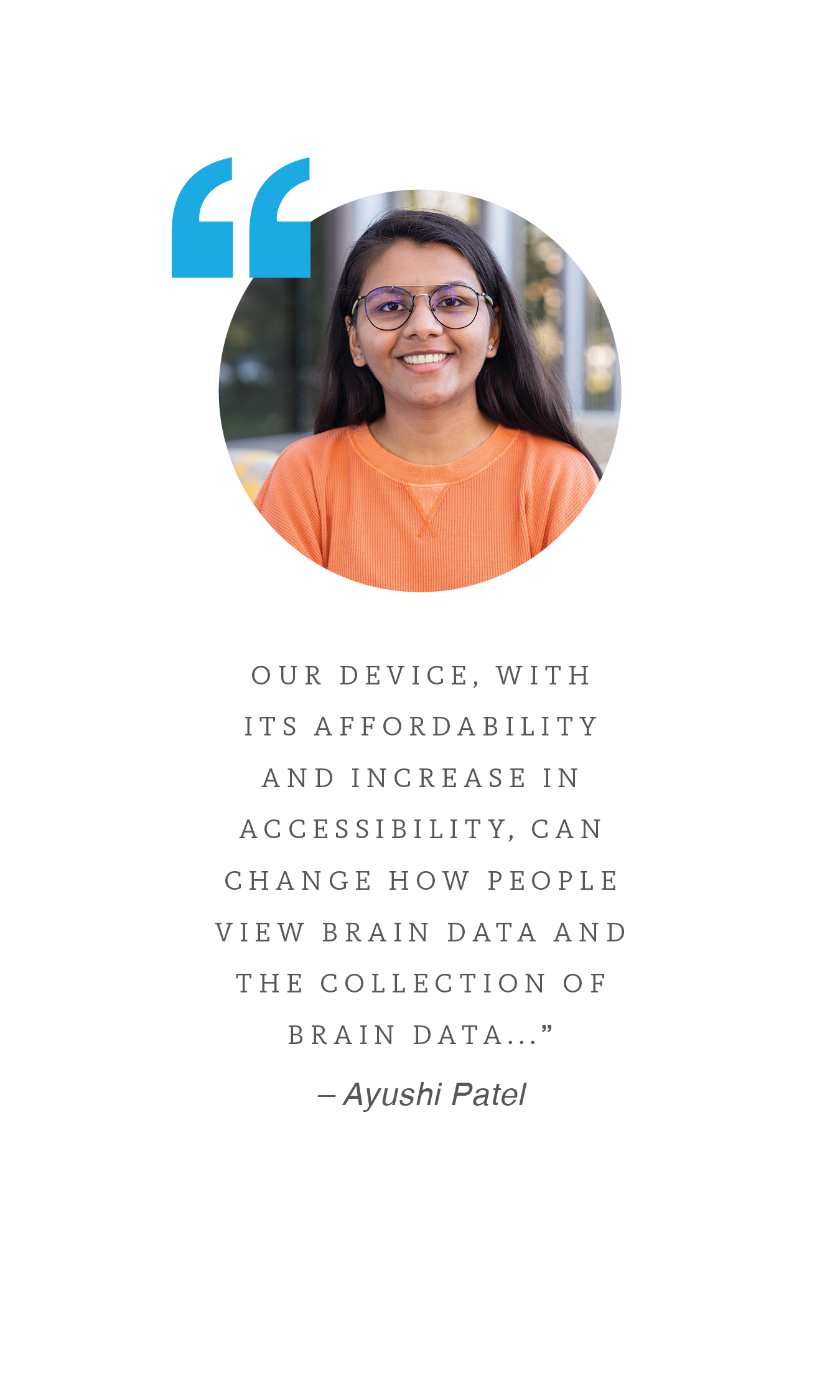The UCI startup is developing a portable EEG device in hopes of putting it into the hands of medical professionals across the world.
The brain is the most intricate part of the human body that, through years of evolutionary growth and development, has served as the central organ that progresses all species forward. Serving as the body’s central intelligence, the three-pound organ encapsulates and controls the body’s vital functions, like heart rate and respiration, as well as physical functionalities, intellect, emotions, memory and so much more. 
However, as important of an organ as the brain is, UC Irvine (UCI) startup CenSyn says brain health monitoring has not been as front of mind in the medical community as it should be to enable on-the-go brain screening for the modern world. And they intend to change that.
An electrocardiogram (ECG) records the electrical signal from the heart to check for different heart conditions and can be found in smartphones and smart watches, tracking a person’s heartbeat, oxygen levels and more. But why not include an electroencephalogram (EEG)?
Enter: CenSyn
The startup wants to bring brain health into focus, solve several issues concerning access to this type of healthcare – including earlier diagnoses of brain conditions – and provide earlier access to brain data for any medical professional across the country and world. And, they want to do this using a EEG the size of a pen.
STARTING OUT
In 2019, after graduating from the Department of Biomedical Engineering in the Henry Samueli School of Engineering, Ayushi Patel, Andy Bhushan and Trevor Silence all had one thing in common – they did not want to go the same route their peers were going, which was to find a job at a company.
“We knew that we wanted to really take what we learned and apply it to something a little bigger,” said Bhushan, co-founder and business strategist at CenSyn.

Drawing from personal experiences, ranging from losing loved ones to experiencing a lack of access to basic healthcare, the trio launched CenSyn in 2019.
“It was a dream for me back in community college to be a part of something where we create neuro-devices,” said Silence, co-founder of CenSyn. “That’s why I was drawn to it and that’s why I’m passionate to take it forward.”
BUILDING THE DREAM
Through their passion and determination, the CenSyn team developed a portable, pocket-sized EEG device that is about 5 inches tall and can easily travel with the intention of measuring brain waves from any point in the country. The team joined the National Science Foundation’s I-Corps program at UCI Beall Applied Innovation where they were able to interview a wide variety of doctors to determine the need for their device. 
“The I-Corps program was instrumental for us at Applied Innovation. It helped us get in touch with clinicians who deal with these situations on a daily basis, understand their environment and develop a solution that would enhance their workflow,” said Bhushan.
After months of research and development, the team literally put their brains together to test out their device, four months of their own brain data, to be exact.
CenSyn also joined Applied Innovation’s Wayfinder program, where they utilize the community of startups and entrepreneurs as source of information. The team currently rents a lab bench in Applied Innovation’s Cove Prototyping lab, which is generously supported by Base 11, where they utilize the 3D printers.
The Cove Prototyping Lab includes 3D printers, laser-cutting machines, manual and automatic machining equipment and an extensive electronics station for building circuit boards. Base 11, a national organization out to solve the growing STEM talent pipeline crisis, which is exacerbated by the underrepresentation of women and minorities, partnered with Applied Innovation to donate funds and equipment to the lab.
“If you have any problems or questions, Sara [Willman] and Myia [Dickens] are always very responsive. Working on the mechanical design and 3D printing stuff, those are the people I see every day,” said Silence. “Working with them and having access to that has been a blessing. I don’t think we’d be here in the same place without that.”
 Through Wayfinder, the team also met Innovation Advisor Peter Crosby, who has 40 years of experience in the medical device industry. Crosby has since joined the CenSyn team as executive chairman.
Through Wayfinder, the team also met Innovation Advisor Peter Crosby, who has 40 years of experience in the medical device industry. Crosby has since joined the CenSyn team as executive chairman.
“Their EEG pen has the potential to revolutionize EEG recording, and results from early prototypes are encouraging,” said Crosby. “CenSyn is led by a team of outstanding young entrepreneurs who are hungry for success, and reach out for help and advice wherever they can find it.”
WHY IT MATTERS
Standard EEG machines can stand at five-feet tall. The machines often cost around $25,000 and require a medically trained specialist to operate it. Most often these machines are located in metropolitan areas, and according to CenSyn, out of the 6,300 hospitals the team surveyed, only 1,800 have EEG machines available – some in limited capacity.
“Even hospitals that have EEGs sometimes run out of space for patients,” said Patel, CenSyn CEO. “So now they have to decide who gets off of these machines so they can put somebody else on it … the triage process can get complicated as well.”

According to a 2019 study, traumatic brain injury (TBI) is a leading cause of death and disability, contributing to about 30 percent of all injury-related deaths in the U.S. In 2015, the CDC cited that more than 3 million people nationwide experienced seizures. When someone experiences a TBI or seizure, every second that can be added toward diagnosing and treating a patient counts toward saving lives.
“We have created a device that can be taken anywhere to get the necessary data for instant screening of seizures, TBI and other neurological conditions,” said Bhushan. “The reason why that’s so important is because when you get quicker data, you give faster treatments. And when you give faster treatments, you can greatly improve the outlook for patients.”
FORWARD THINKING
Recently CenSyn has grown into a team of 11 and has been working with a local angel investor group on securing pre-seed funding. They are focused on pursuing a study with clinicians to gather patient data, which will allow the team to pursue FDA 510(k) clearance. CenSyn also aims to continue to increase awareness about brain health and focus on accessibility to change how people view brain data.
“I feel like it’s so neglected that even to explain to somebody what an EEG is requires an ECG example, which already says a lot,” said Patel. “That should not be the case of the level of awareness. Our device, with its affordability and increase in accessibility, can change how people view brain data and the collection of brain data, which would be the goal.”
Learn more about CenSyn.
*Main Graphic and all Photos: Julie Kennedy, UCI Beall Applied Innovation